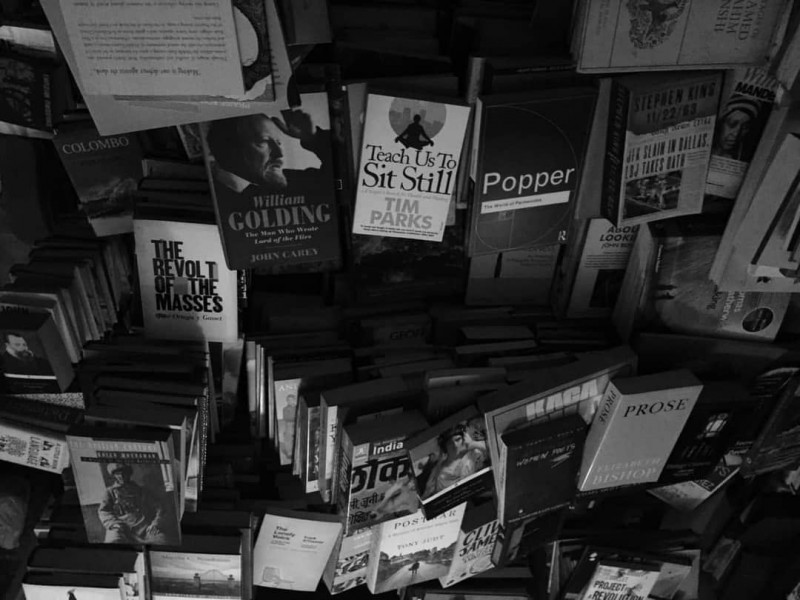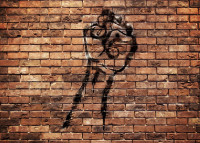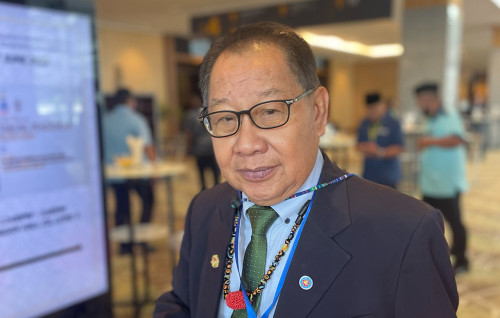“Life changes in the instant. The ordinary instant.”
~ Joan Didion
WHAT does literature have to say to us in 2020, this year unlike all others? Perhaps, if anything, that this year is not so strange after all, that the world has always been a place of wilderness and the unknown, and literature has long been a window to the world and its chaos. Perhaps, too, that reading is one of the most radical and meaningful acts left to us, in this time of uncertainty.
Here, then, are some of the literary moments of 2020 that left a lasting impression on me:
1.) Rereading literature of illness, death and mourning: As the Covid-19 pandemic spread like wildfire across the globe, many of us reached for our bookshelves to reread pandemic literature, to help us make sense of the chaos we found ourselves in: ‘The Plague’ by Albert Camus, ‘Pale Horse Pale Rider’ by Katherine Anne Porter, ‘Death in Venice’ by Thomas Mann, ‘The Decameron’ by Giovanni Boccaccio, or Alessandro Manzoni’s ‘The Betrothed’. Some of us, too, reached for books that teach us how to grieve and reflect on human mortality: Joan Didion’s ‘The Year of Magical Thinking’ was a close companion to me this year, as was the poetry of Paul Celan.
2.) One of the most heartbreaking writings I came across this year was a poem written by Long Qiaoling, a frontliner nurse from Wuhan, the epicentre of the coronavirus pandemic. This poem, with all its literary ‘imperfections’, made its rounds on the internet in March as most of the world went into lockdown, and showed us that poetry can still speak to us deeply in the darkest hours:
"Please allow me to remove my protective gear and mask
To separate my flesh from the armor
Let me lean my body down
Let me breathe quietly
Ah….
The slogans are yours
The praise is yours
The propaganda, the model workers, all are yours
I am just fulfilling my duties
Acting on a healer’s conscience
Often, we go bare-skinned into battle
No time to choose between life and death
Truly no high and mighty thoughts
Please don’t give me a wreath
Don’t give me applause....
Media, reporters
Please don’t bother me
The so-called truth, the numbers
I don’t have time or heart to follow
I’m exhausted day and night
To rest, to sleep
Is more important than your praises
If you can, please go and see
Those ruined homes
Is smoke rising from their hearths?
Those scattered phones in the crematorium
Have they found their owners?"
3.) 2020 saw some remarkable achievements of Malaysian literature on the world stage: 21-year-old Erica Eng won an Eisner Award for her webcomic, Fried Rice; Joshua Kam won the 2020 Epigram Books Fiction Prize for his novel, ‘How the Man in Green Saved Pahang, and Possibly the World’; Poetry collection ‘Tell Me, Kenyalang’ by Sarawak poet Kulleh Grasi, translated by literary translator Pauline Fan and published by Circumference Books, was shortlisted for the prestigious National Translation Award in Poetry and longlisted for the Best Translated Book Award in the United States; Mahua writer Ho Sok Fong’s ‘Lake Like a Mirror’, translated by Natascha Bruce and published by Granta, was shortlisted for the 2020 Warwick Prize for Women in Translation, while Long Litt Woon’s ‘The Way Through the Woods’, translated from Norwegian by Barbara Haveland and published by Scribe UK, made it to the longlist; Hanna Alkaf’s second novel, ‘The Girl and the Ghost’, published by HarperCollins, was a finalist for Kirkus Review Prize for young people’s literature.
4.) Malaysians mourned the passing of two iconic writers in 2020: Malaysian-Indian fiction writer and scholar K.S. Maniam left us on Feb 19th while iconoclastic ‘bad-boy’ poet Salleh Ben Joned passed away on October 29th.
5.) 2020 was a year of unassuming literary prize winners. The Nobel Prize for Literature went to the American poet Louise Glück, a voice of introspection, interior landscapes and stark beauty. In other major literary awards, debut novels reached for the stars. The International Booker Prize went to ‘The Discomfort of Evening’ by Marieke Lucas Rijneveld, translated from Dutch by Michele Hutchison and published by Faber & Faber, while the Booker Prize went to ‘Shuggie Bain’ by Scottish-American Douglas Stuart, published by Grove Press.
6.) Japanese and Korean women writers made international headlines this year. Among the books by Japanese women writers challenging the predominance of Haruki Murakami in the international literary sphere are Mieko Kawakami’s ‘Breasts and Eggs’, Yoko Ogawa’s ‘The Memory Police’, and Sayaka Murata ‘Earthlings’. Yu Miri’s ‘Tokyo Ueno Station’, translated by Morgan Giles, won the US National Book Award for Translated Literature, while Korean-born poet and translator Don Mee Choi won the National Book Award for Poetry for her collection, DMZ Colony. Meanwhile, the 2020 National Translation Award for Poetry was given to Jake Levine, Soeun Seo, and Hedgie Choi for their translation of Korean writer Kim Yi-deum’s Hysteria.
7.) In the world of literary translation, distinguished poet and translator Pierre Joris completed his masterful translation of Paul Celan’s entire poetic oeuvre, with the publication of ‘Memory Rose into Threshold Speech: The Collected Earlier Poetry’, published by Farrar, Straus, Giroux. Closer to home, The Genealogy of Kings (Sulalatus Salatin) translated by Sasterawan Negara Muhammad Haji Salleh was published by Penguin Random House SEA, in their newly launched Southeast Asian Classics series.
For me, 2020 was a year of radical reading. A year in which I realised once again, the necessary power of the written word for our fragile human condition. In the words of Joan Didion: “we are imperfect mortal beings, aware of that mortality even as we push it away, failed by our very complication, so wired that when we mourn our losses we also mourn, for better or for worse, ourselves. as we were. as we are no longer. as we will one day not be at all.” – The Vibes, December 31, 2020
















